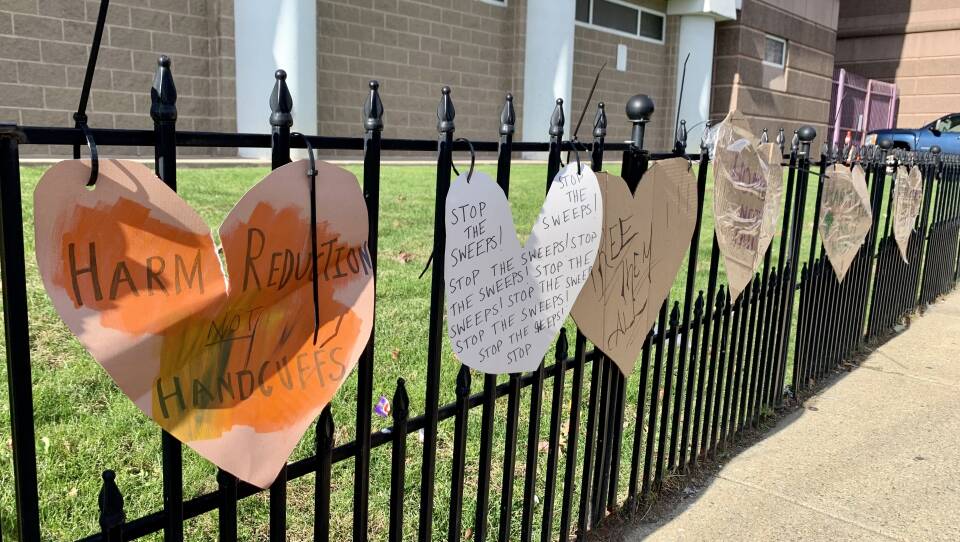Boston acting Mayor Kim Janey’s attempt to clean up the encampment of homeless people at the intersection of Mass. Ave and Melnea Cass Blvd. in Boston, known as Mass. And Cass, has stirred controversy, and even prompted litigation from the ACLU. Daniel Medwed, GBH News legal analyst and Northeastern law professor, joined host Aaron Schachter on Morning Edition to talk about the legal issues surrounding Janey’s plan.
Aaron Schachter: A few weeks ago you talked with us about the legal basis for Janey’s plan. Let’s revisit that briefly: Does her plan stand on firm legal ground?
Daniel Medwed: I think it does. When she issued her executive order in October, she framed it as a “public health crisis,” which makes it easier to legitimize her plan. First, under the City Charter, an acting mayor can only draw on the regular Mayor’s power for quote “matters not admitting of delay,” which basically means time-sensitive, emergency measures.
Second, the charter provides that a city official can only spend money not otherwise appropriated “in case of extreme emergency involving the health or safety of the people or their property.” So, she seems to have had authority to act. The bigger legal issue relates to the execution of the plan.
Schachter: Let’s talk about the execution of the plan. One of the stated goals was to steer people with outstanding arrest warrants into treatment rather than jail. Has the plan played out as intended so far?
Medwed: Not really. During the rollout, the police have made a number of arrests of people with outstanding warrants, and their cases have been heard in a special, makeshift court in the South Bay House of Correction, a jail in Boston. Of the first nine people whose cases were brought to that court, only two were dispatched to treatment programs, two were released on their own recognizance and another person picked up a new warrant after failing to show up at her assigned shelter.
The remaining four were put in jail and sent to jurisdictions with outstanding warrants, including a man who was sent to the Worcester jail in the midst of a COVID-19 outbreak and over the objections of both the prosecutor and public defender. So I think it’s fair to say that, on the ground, the plan is not playing out precisely as advertised.
Schachter: Daniel, last week the ACLU filed a lawsuit objecting to the cleanup effort. What are the main claims in the lawsuit?
Medwed: The lawsuit is what is known as a “class action” filed on behalf of three people who represent a particular class of people, the homeless community at Mass. and Cass. The complaint makes two chief claims. The first is that it violates both the constitution and disability discrimination laws for the City to threaten criminal sanctions for people who fail to comply with the displacement effort without any meaningful, individualized process to ensure they have access to adequate housing alternatives.
The second is that by removing people from their only shelter, the city is unlawfully seizing and destroying their property in violation of the Fourth Amendment and the constitutional guarantee of due process. That’s the basic layout.
"I think it's fair to say that, on the ground, the plan is not playing out precisely as advertised."-Daniel Medwed, GBH News Legal Analyst
Schachter: What kind of remedy is the ACLU seeking? Do they want a stop to the cleanup effort? Or money damages?
Medwed: Both. The lawsuit principally seeks “injunctive and declaratory relief,” which is essentially a request for the court to order the city to cease operations immediately. But the lawsuit also seeks damages — both actual and punitive — for the three named plaintiffs in the class action who claim the city destroyed their personal property as part of the displacement effort.
Notably, the ACLU filed the suit directly with a single justice of the highest court in the Commonwealth, the Supreme Judicial Court, rather than with a trial court, as is more common in seeking injunctive relief. That means this case might be resolved at the highest level sooner rather than later.







